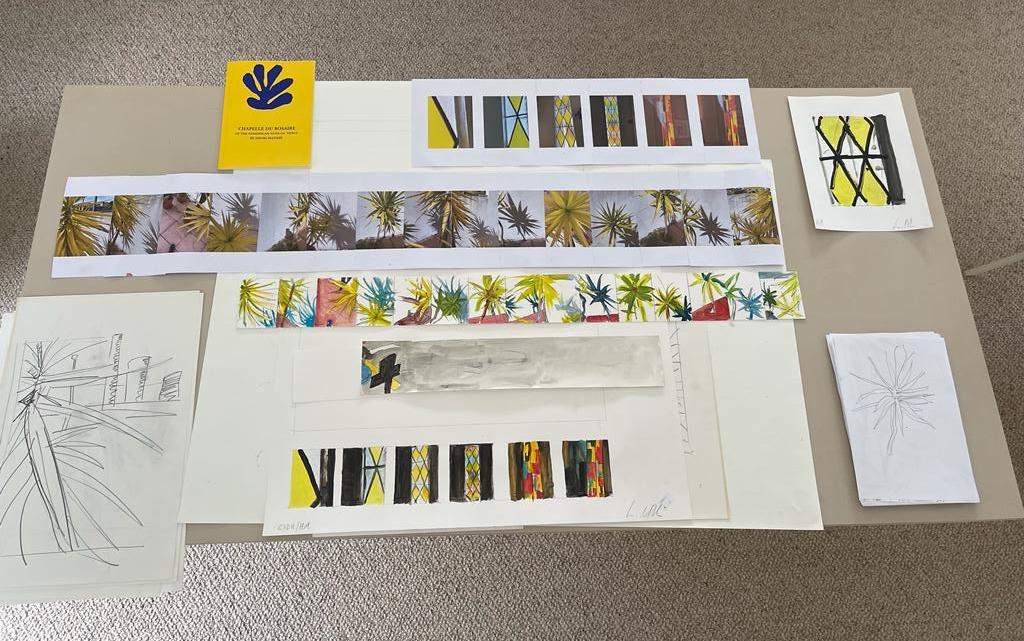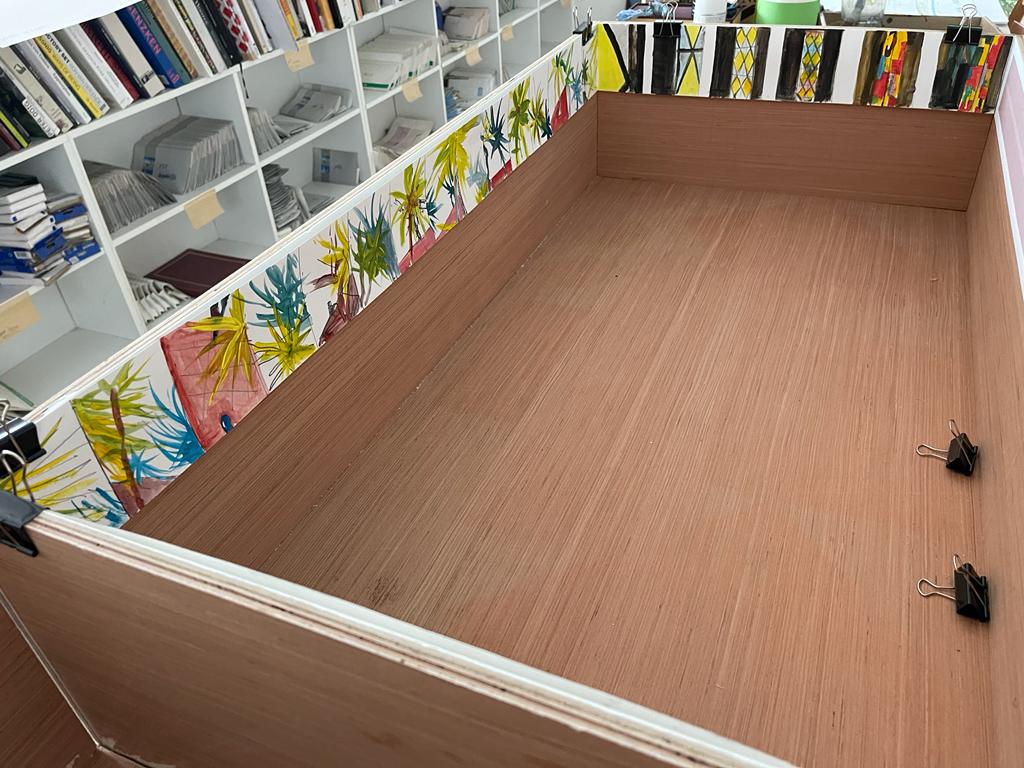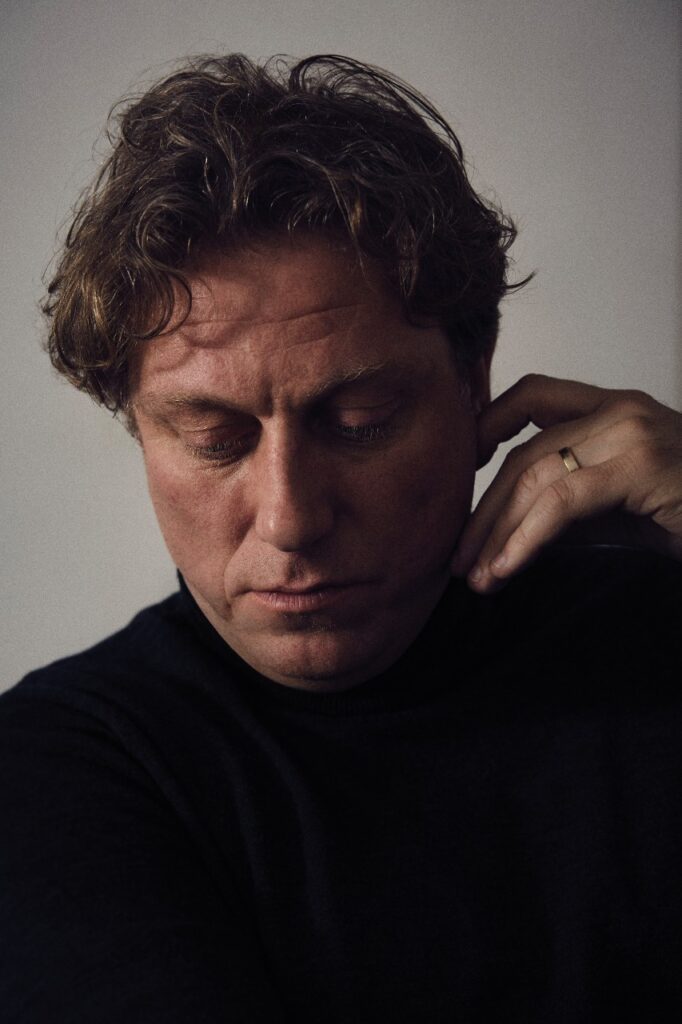
INTRO
Koen van den Broek (b. 1973) is a Belgian artist known for his paintings of pavements, curbs, and desolate street corners that he creates from his own photographs. The artist studied at the Royal Academy of Antwerp and the Academy of Visual Arts of Breda in the late 1990s and began his career focused on architecture before turning to painting. His paintings often begin with observations, almost meditations, on architectural features of urban environments.
To Van den Broek, architecture begins on the ground, whereupon he simply looks down and photographs what he sees. This process is evident in his work, which is full of sprawling pavement cracks and bright yellow sidewalk curbs. “The first architecture is the street,” says Van den Broek, for whom the cracks in a street resemble the works of Franz Kline, and yellow curbs call to mind sculptures by Donald Judd. “If you look out the window at night, it’s a black square and you think of Malevich,” he says. “It’s nothing that I’ve invented.”
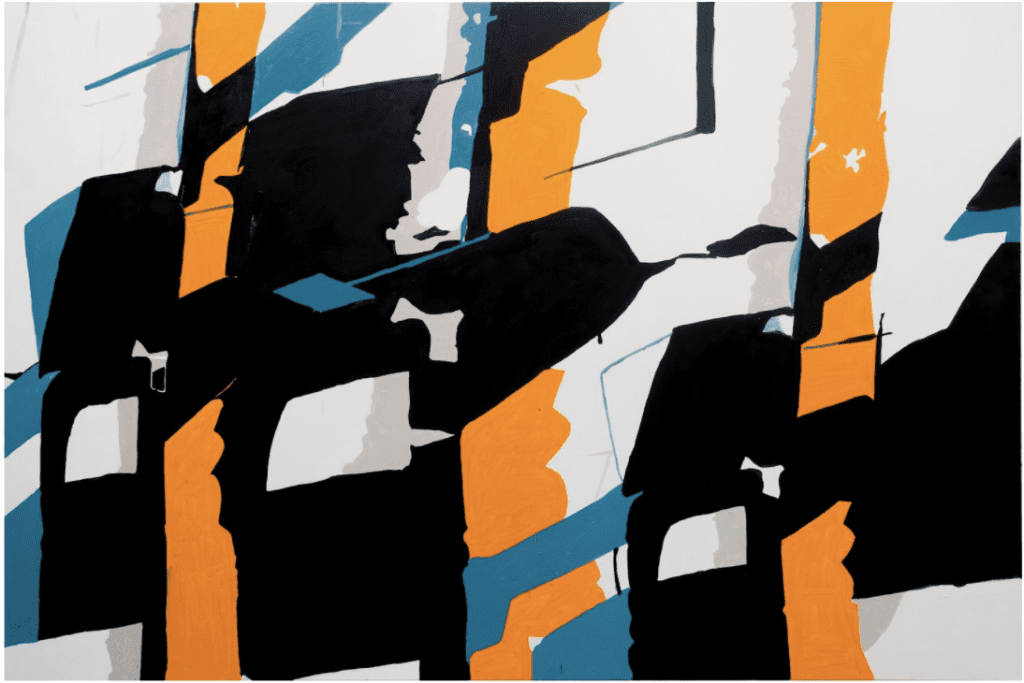
Yet, while his work can evoke that of 20th century artists such as Kline, Barnett Newman, and Clyfford Still, the compositions of his canvases feel unique to him. And while they are often inspired by the architectural elements that surround him during his travels, they don’t necessarily evoke the places from which they are taken. This is partly because Van den Broek has mastered the ability of taking the figurative elements of these urban landscapes and pushing them to the point of abstraction.
In an essay featured in the 2007 publication Koen van den Broek, Angle: Museum of Modern Art, Antwerp curator Dieter Roelstraete writes:
In Van den Broek’s paintings, these grounds – represented mostly by straight or curving curbs, the matricial tools that help us maneuver the habitable earth – are no mere formal devices for demonstrating the artist’s effortless mastery of the modernist paradigm of the grid [inevitably, Henri Matisse and Barnett Newman comes to mind, followed by Ellsworth Kelly, Franz Kline, Morris Louis, all undisputed masters of delineation and demarcation]; they also provide guidance – above all to the viewer. Their spines are, quite literally, leads: lines of flight and sight, channelling and directing our gaze towards a world that veers away from us, yet also beckons us to explore it further.
While Van den Broek calls Antwerp home, his work is often influenced by his travels. Van den Broek’s recent series of works on paper for his Spotlight, painted from his hotel room in Dubai, tells a story of his travels through colorful watercolors of acacias, desert sunsets, and of course, curbs and streets. His trip to the U.A.E. marked the artist’s first international travels since the pandemic began; it feels suitably inspired.

ON PROCESS
Architecture plays a vital role in Koen van den Broek’s works. He often uses images from his travels to inform his work. Using photographs of cement cracks, highways, and the shadows created by buildings, Van den Broek reduces these architectural forms to their fundamental geometry. He takes these perceptions of roads and borders to expand the definition of the landscape painting. Thus, he operates by looking down first, rather than up, and focusing on the irregularities of man-made interventions of the landscape.
“Everything I do comes from the world. It’s not something I make up, it comes from details I see that I digest and re-work.”
Koen van den Broek
One of Van den Broek’s key paintings, Broken Yellow Border, which is in the collection of Jeremy Lewison (formerly Director of Collections of Tate), exemplifies the ability of his work to play on the viewer’s perception and to defy expectations. From one perspective, that work is a rendering of a common yellow-painted curb. From another, “if you picture it from an airplane” says Van den Broek, it appears to be “an intervention in the desert.”
Van den Broek does not consider the outcome of this process to be work that is purely abstract. On the contrary, he envisions art as a direct reflection of what the artist sees, stating that everything he does “comes from the world. It’s not something I make up, it comes from details I see that I digest and re-work.” And while his work veers toward this obliteration of subject matter, according to Van den Broek, nothing in his work is abstract. This is apparent in his artistic process, in which he takes Polaroids and digital photographs of architectural spaces and translates them into meditations on angles and planes.
NOTEWORTHY COLLECTIONS
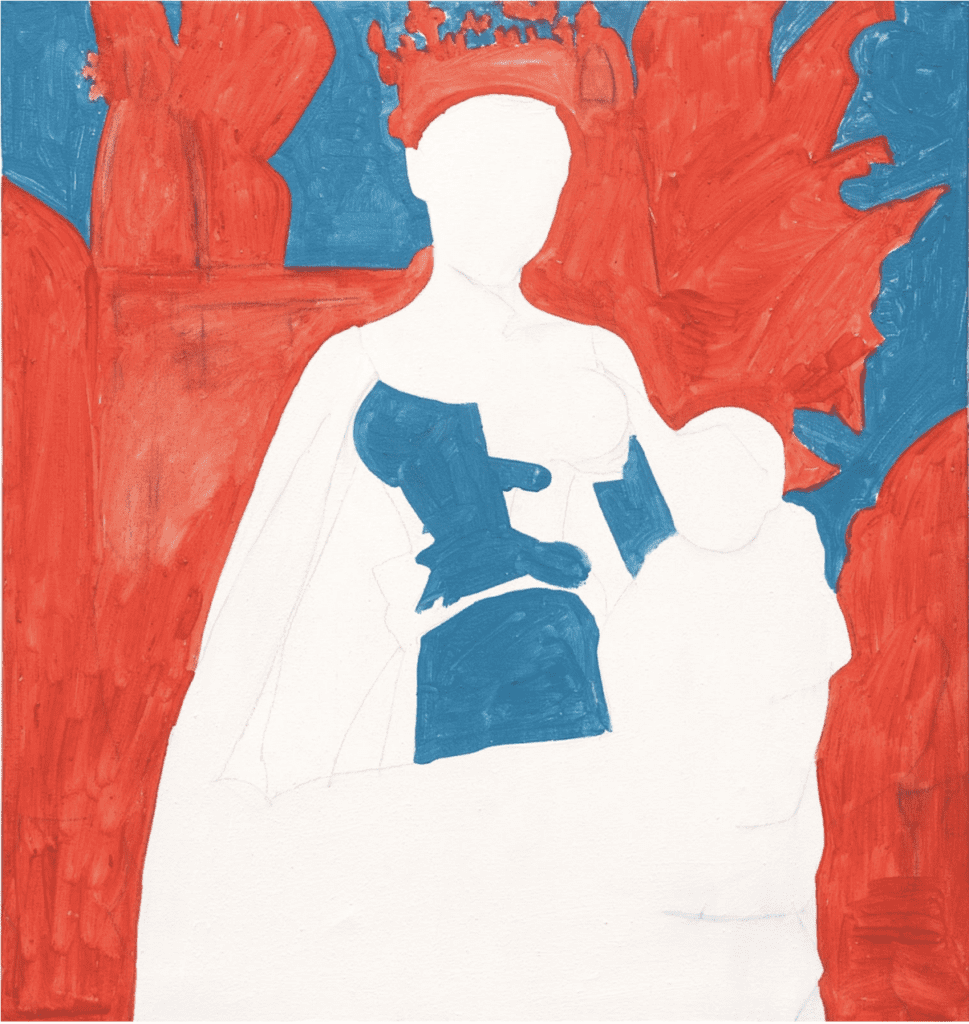
Works by Koen van den Broek are included in private and institutional collections around the world, including the Los Angeles County Museum of Art; the Pizzuti Collection of the Columbus Museum of Art; The Hall Art Foundation, Reading, Vermont; S.M.A.K., the Municipal Museum of Contemporary Art, Ghent, Belgium; The Stoffel Collection of The Munich Pinakothek der Moderne; Museum Voorlinden, Wassenaar, The Netherlands; The Museum of Contemporary Art (MuHKA), Antwerp; Leeum Collection, Seoul; Busan Museum of Art, South Korea; and Astrup Fearnley Museum of Modern Art, Oslo. Private collections include those of Elton John, Jeremy Lewison, and Dean Valentine.
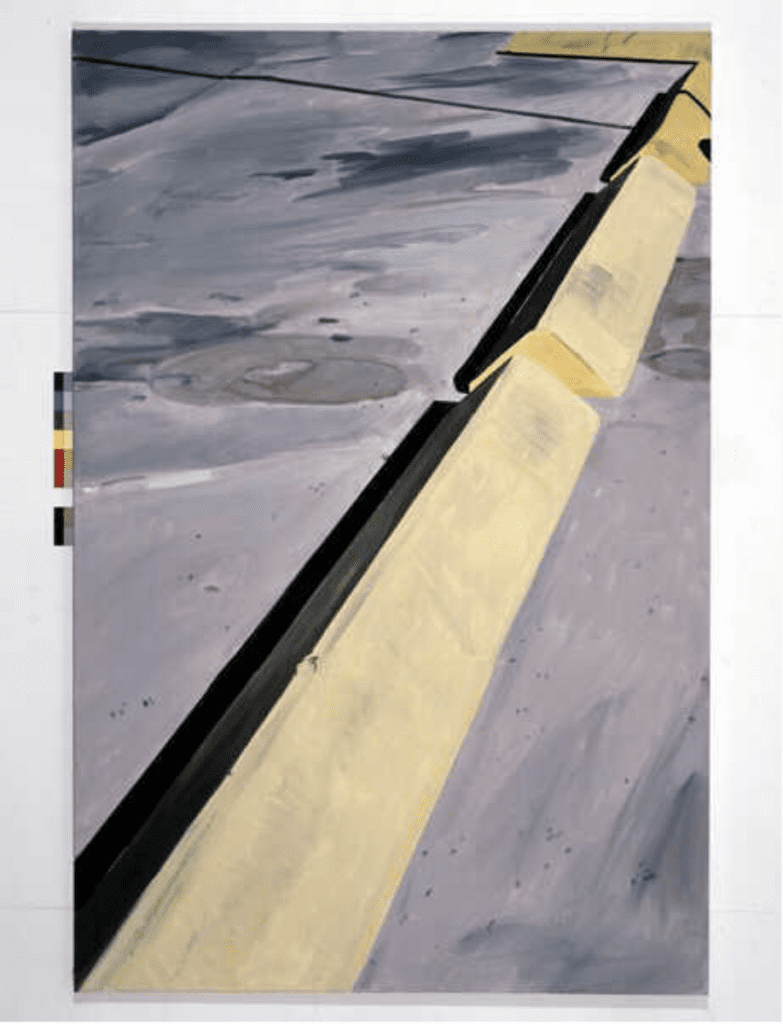
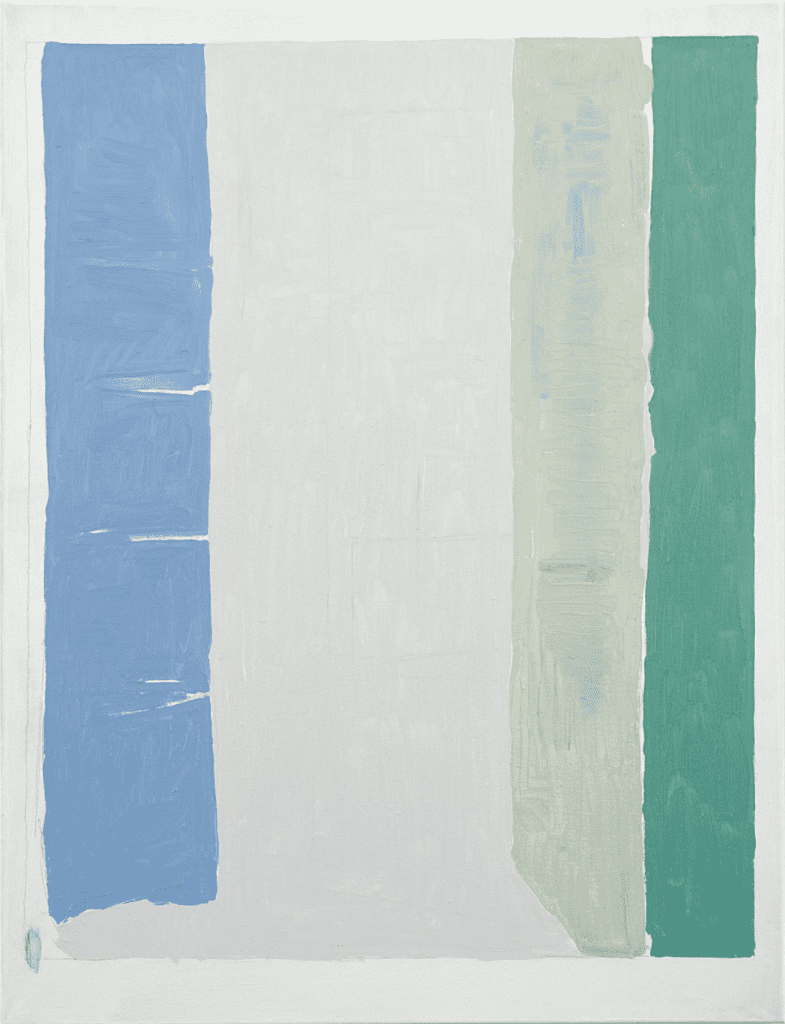
CURRENT PROJECTS
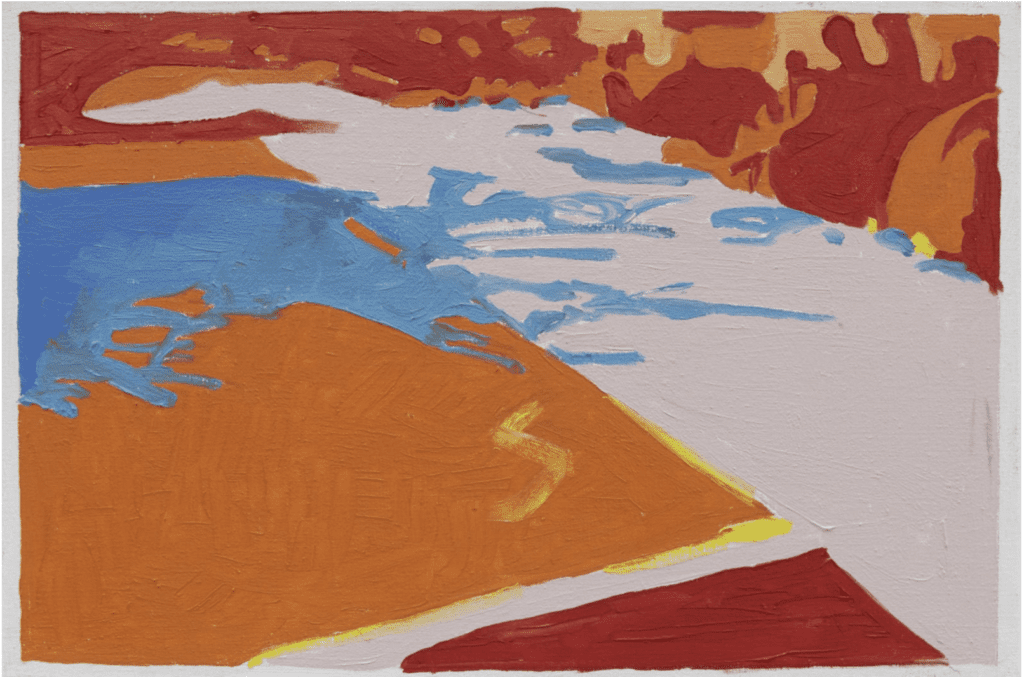
Koen Van den Broek’s recent solo exhibitions include “Tango in Paris” at the Philipp von Rosen Galerie, Cologne as well “In Between Memory and Dream,” at Gallery Baton, Seoul. Van den Broek is represented by Galerie Greta Meert, Brussels; Philipp von Rosen Galerie, Cologne; Gallery Baton, Seoul; and Galerie Ron Mandos, Amsterdam.
In March 2022, De Buck Gallery exhibited “Spotlight: Koen Van den Broek” in New York, which featured the artist’s latest series of works on paper inspired by his recent trip to Dubai. In July 2022, Van den Broek’s new paintings are featured in “Warm Comfort,” a solo show at De Buck Gallery’s Saint-Paul de Vence location.
Van den Broek’s next project, ‘Boekentoren’ and will take place at the Charles van den Hove Paviljoen. He will be pulling certain motifs from Matisse carreau (2022) inspired by the Chapelle du Rosarie de Vence, also known as Matisse’s Chapel in the South of France.
